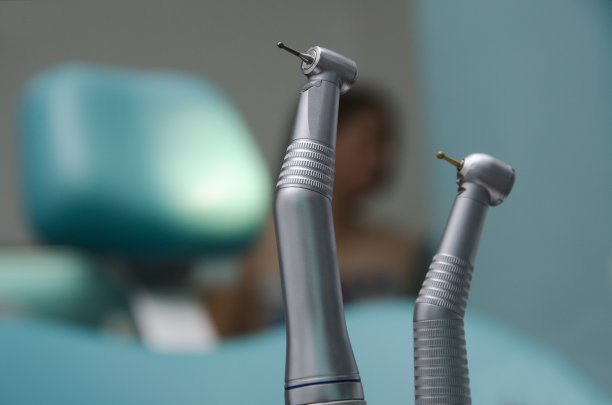Summary: Dental implant treatments have revolutionized dental care by offering exceptional benefits for oral health and aesthetic improvements. This article explores four key areas: the significant enhancement of oral health that implants provide, the innovative techniques and technologies utilized in modern implantology, the psychological and social advantages associated with improved aesthetics, and the long-term value and sustainability of dental implants. Through this exploration, we underscore how these advancements contribute to not only restoring smiles but also enhancing ones quality of life. The integration of cutting-edge research and development in this field holds promising potential for future dental practices.
1. Enhancing Oral Health with Dental Implants

Dental implants serve as a reliable solution for restoring lost teeth, which significantly enhances overall oral health. When a tooth is lost, the surrounding bone structure can deteriorate, leading to further complications such as misalignment and additional tooth loss. Dental implants are anchored into the jawbone, providing the necessary stimulation to preserve bone density and health.
Furthermore, implants improve the functionality of the mouth. Unlike dentures, which can slip or cause discomfort, implants function like natural teeth, allowing individuals to chew and speak without worry. This functional aspect not only enhances individual comfort but also promotes better nutrition since patients can consume a wider variety of foods.
Moreover, the oral hygiene of individuals with dental implants tends to improve. With proper care, these implants can last a lifetime, reducing the need for frequent dental procedures related to tooth decay or gums disease. This positive impact on overall health makes implants an invaluable option for many patients.
2. Technological Innovations in Implantology
The field of dental implantology has seen remarkable advancements in technology that have optimized the success rates and patient experiences. One such innovation is the use of 3D imaging and computer-assisted design (CAD). These technologies enable precise mapping of a patient’s mouth, ensuring that implant placement is both effective and minimally invasive.
Another significant advancement is the introduction of biocompatible materials that further enhance the integration of the implants with the jawbone. For instance, titanium implants are widely favored due to their strength and ability to fuse seamlessly with bone tissue through a process called osseointegration. Such developments improve the longevity and stability of implants considerably.
Furthermore, the integration of laser technology into dental procedures has transformed implant placement. Lasers allow for more precise tissue management, reduced bleeding, and faster recovery times, making the overall experience less daunting for patients. These innovations reflect a continuous commitment to enhancing patient care in dental practices.
3. Psychological and Social Advantages of Implants
Aesthetic improvements from dental implants can have profound psychological impacts. A restored smile boosts self-esteem and confidence, allowing individuals to engage more freely in social interactions. Many reported feeling embarrassed about their oral condition previously, leading to social withdrawal. Implants can significantly change this dynamic, fostering a more positive self-image.
Social perceptions regarding dental aesthetics are strongly linked to personal and professional opportunities. Those with beautiful smiles are often perceived as more successful and approachable. Therefore, dental implants can enhance ones social life, leading to improved relationships and job prospects. This societal acceptance contributes to the overall mental health and emotional well-being of individuals.
Moreover, the ability to speak clearly without the hindrance of missing teeth can greatly enhance personal communication. Individuals find that their interactions become more vibrant and meaningful once they no longer feel self-conscious about their teeth. This renewed freedom can lead to improved social engagement and fulfillment in various aspects of life.
4. The Long-term Value of Dental Implants
When considering dental options, the long-term value of dental implants stands out. Though the initial costs may be higher than traditional dentures or bridges, the durability and longevity of implants present a significant financial advantage over time. Patients often find that implants require fewer replacements and interventions, leading to lower overall costs.
Additionally, the maintenance of dental implants is relatively straightforward compared to other dental appliances. With basic oral hygiene practices like regular brushing and flossing, along with routine dental check-ups, implants can serve patients effectively for decades. This sustained usability adds to the investment value of dental implants.
Furthermore, the preservation of jawbone integrity through implants can prevent future dental issues, culminating in cost savings and enhanced health. The long-term benefits of dental implants truly reflect their status as a premier solution for tooth restoration.
In summary, the exploration of dental implant treatments showcases their multifaceted benefits that extend beyond mere aesthetics. By improving oral health, integrating advanced technology, bolstering psychological well-being, and providing long-term value, dental implants have proven to be a transformative dental solution. As technology continues to evolve, the future of dental implants looks even more promising, offering patients hope for healthier, more beautiful smiles.
This article is compiled by Vickong Dental and the content is for reference only
Vickong Dental
Vickong Dental is a large medical group established in Hong Kong in 2008 by professors from well-known medical universities in Guangdong and Hong Kong, as well as medical doctors from key national '985' universities (including Master's supervisors and senior professors). The chain of branches brings together expert dentists with PhDs and Master's degrees from Hong Kong and Mainland China, committed to providing high-quality dental treatment.
"Vickong Dental Practices the University Motto of 'Healing and Serving Society,' with a Stable Operation for Sixteen Years. It Has Been honored with Hong Kong Enterprise Leaders's Choice,' and is a Global Trusted Implant Center for the Nobel Implant System. Recommended by Hong Kong Metro Broadcast and Guangdong Television, it Serves Customers from Over Thirty Countries and Regions, Gaining the Trust and Favor of Citizens from the Guangdong-Hong Kong-Macau Greater Bay Area and Surrounding Cities.

Thousands of customers' unanimous praise
The most recognized and highly recommended dental service by customers in the Guangdong-Hong Kong-Macau Greater Bay Area
We Ensure You Receive Detailed Care and Attention Here
Hong Kong standards, Shenzhen prices, Your Trusted English-speaking dentists

Vickong Dental Medical-Grade Instrument Disinfection Process
Vickong Dental Medical-Grade Instrument Disinfection Process

Vickong Dental Chain: A Warm and Comfortable Environment for Treatment






Appointment Hours

Q&A
Why choose Vickong Dental?
Vickong Dental practices the university motto 「Medicine to Benefit Society」, with each branch bringing together highly qualified dentists with doctoral and master’s degrees from Hong Kong and the Mainland, and has maintained seventeen years of steady operation。Recipient of 「2024 Hong Kong Enterprise Leaders Brand」, 「2025 Hong Kong Enterprise Leaders Brand」, a Nobel Biocare Global Trusted Implant Center, and a brand recommended by Metro Radio Hong Kong and Guangdong TV。
To date, we have served customers from more than thirty countries and regions,earning exceptionally high word-of-mouth recognition and trusted recommendations from residents across the Guangdong-Hong Kong-Macao Greater Bay Area and surrounding cities
We have eight major branches in Zhuhai、Shenzhen,and a consultation and service assurance center in Hong Kong,so you can book a free consultation at any time for any questions,which is very reassuring.
If I do not accept the quotation after the CT scan, will I be charged??
No! As long as the actual treatment has not started, you will not be charged any fees.
Will there be any additional charges during the treatment process?
No, there won’t be any additional charges. Before treatment begins, we will clearly explain the treatment plan and its corresponding fees. Only after the patient agrees and signs the consent form will we proceed with the dental service.
Can I pay in Hong Kong dollars?
Yes. Vickong Dental accepts payment in Hong Kong dollars. The amount will be converted based on the exchange rate of the day, and the applicable rate will be clearly communicated to you in advance.
Can I reschedule my appointment at any time?
Yes. Please contact us via **WeChat** or **WhatsApp** as early as possible, providing your original appointment time and details, along with your preferred new date and time slot for rescheduling.













